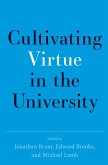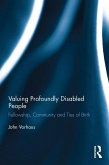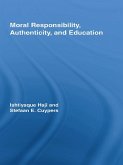The simple premise of this book is that the purpose of education is to serve the well-being of students. Well-being might seem to be an obvious aim for education, but it has been given insufficient attention and often is poorly understood. Karl D. Hostetler asks: What does it mean for a human being to live a good life, to experience well-being? How, as individuals and a society, can we debate and evaluate the quality of lives? What classroom practices would be conducive to furthering the welfare of our students?
Hostetler explores how teachers can "seduce" students' souls, guiding and provoking while still respecting individuals' rights to conceive and live a fulfilling life for themselves. He prompts serious reflection about the purposes of education and challenges dominant ideas about the aims of education, the politics of policy-making, and the practice of teaching. Seducing Souls argues eloquently and provocatively for the necessity of experiences that touch the soul, that elevate the young self so that students can better understand life and discern value.









